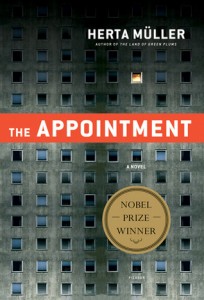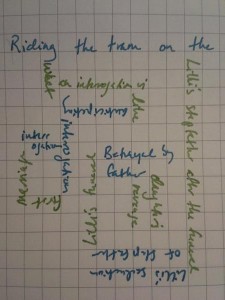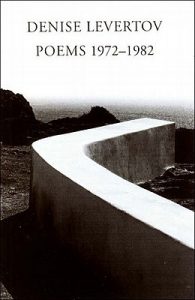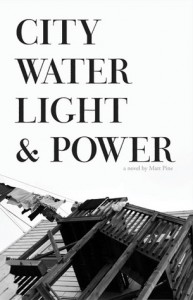NaPoWriMo
I’d actually been making really good progress on writing a poem a day for NaPoWriMo before I got on the ferry to come here. I think I’d created first drafts of seven or eight poems in eight days. Some of those days I’d written two poems. But throughout the process I’ve become even more keenly aware of my limitations as a poet. Talking with Nicole Hardy and Karen Finneyfrock (both poets who also write prose) last night, I kept saying things like “I haven’t written poetry since high school” and hearing how that sounded. I know that the time I’ve spent improving my fiction has definitely helped my poetry, I can feel that, but it’s far from good yet. I knew I needed help. Admitting that is the first step, right?
Walking Light: Essays and Memoirs
I’d actually placed Stephen Dunn’s Walking Light: Essays and Memoirs on my Christmas list this year and then forgotten about the book. I think I heard about it through ModPo but I can’t even remember the context. My husband scoured the internet for a copy for me and I’m so glad because it’s exactly what I needed right now. Dunn’s essays are about life and poetry in this way that makes them completely wonderful for an aspiring poet. I fell in love with the book on the first page of the introduction when Dunn describes as essayist as “a person who believes there’s value in being overheard clarifying things for himself.” That line was humorous and self-deprecating and true in all the ways that told me I could trust this man to teach me about writing and the world.
The essays in this book are accessible in the best of ways whether he’s discussing the “ambiguities that poets must honor” or how poems “must make available the strangeness that is our lives.” This is not a how-to book, but he does delve into some poems that work and some that don’t, and he writes frankly about both. And the book is filled with useful insights like, “The poem is not written in natural speech. Few successful poems are. But it does give the illusion of natural speech.” I don’t always agree with Dunn’s assessments, but the mere fact that he’s brought me to a level where I feel like I have an educated opinion about poetry is a triumph for me.
“There’s hope for someone who can be embarrassed by poor word choice.” – Stephen Dunn
His essays about life are equally good. I particularly loved “A History of My Silence” which is an essay about Dunn’s shyness. I’ve only recently realized how deeply shy I am and have always been, although I’ve covered it up pretty well at times, and reading lines like, “What a pleasure reading was: the world received in silence, at my own pace” made me feel that my shyness is a trait not a deficit, and I was so glad to know that I’m not the only one with a “history of letting you know only what is useful for me to let you know.” That’s something I fight to get past in my writing, but it feels functional in my day to day life.
Ordinary Genius: A Guide for the Poet Within
Whereas Dunn’s book is so rich that I could only read a few pages at a time before passing out (seriously, I couldn’t even finish an essay), Ordinary Genius: A Guide for the Poet Within by Kim Addonizio is so delightful and quick that I couldn’t put it down. This is much more of a how-to book, but it’s written so conversationally and intelligently that she can impart three lessons where you thought you were learning one. I’m savoring both books a bit, but Addonizio has already taught me about the traffic signals of punctuation in a poem and answered a question about word spacing that had bothered me so much I’d actually been running around asking people about it. I’m learning about music and detail and how rhyme is related to echo. She’s opening my work up already.
As I’ve worked my way through the book, I’ve written so many first drafts of poems I didn’t even know I had inside me. I’ll take her advice about revision seriously and take heart that some poems “are supposed to fail, to teach you that you have to keep going and try out new strategies.” I’ll even try plodding through meter, a bit.
“Dare to feel like a beginner–unsure and clumsy at first, but having a good time and doing your best to learn.” – Kim Addonizio
Ordinary Genius is also more than a how-to book–it’s a book where an established artist talks openly with an aspiring one. Addonizio’s advice on publishing is priceless to writers of all genres. And insights like, “While there is a real distinction between art and therapy, the truth is that art is therapeutic. It helps you to take something that is within you and make a place for it outside of yourself” make me want to keep writing forever and ever and ever.
I’m off to make some space outside of myself for these projects. I’d love to hear about how you’re experiencing NaNoWriMo or how you’re challenging yourself in the comments.
If this review made you want to read Walking Light or Ordinary Genius pick up a copy from Bookshop.org. Your purchase keeps indie booksellers in business and I receive a commission.
 When I woke this morning, I didn’t want to pick up The Appointment by Herta Müller even though I only had a few pages left to read. I successfully avoided the book all day yesterday, too. But not for the reasons you might think. I set the book aside because it was so good, so cleanly and smartly written, that I didn’t want it to end.
When I woke this morning, I didn’t want to pick up The Appointment by Herta Müller even though I only had a few pages left to read. I successfully avoided the book all day yesterday, too. But not for the reasons you might think. I set the book aside because it was so good, so cleanly and smartly written, that I didn’t want it to end.
 There are many ways I will fall in love with a book.
There are many ways I will fall in love with a book. 
